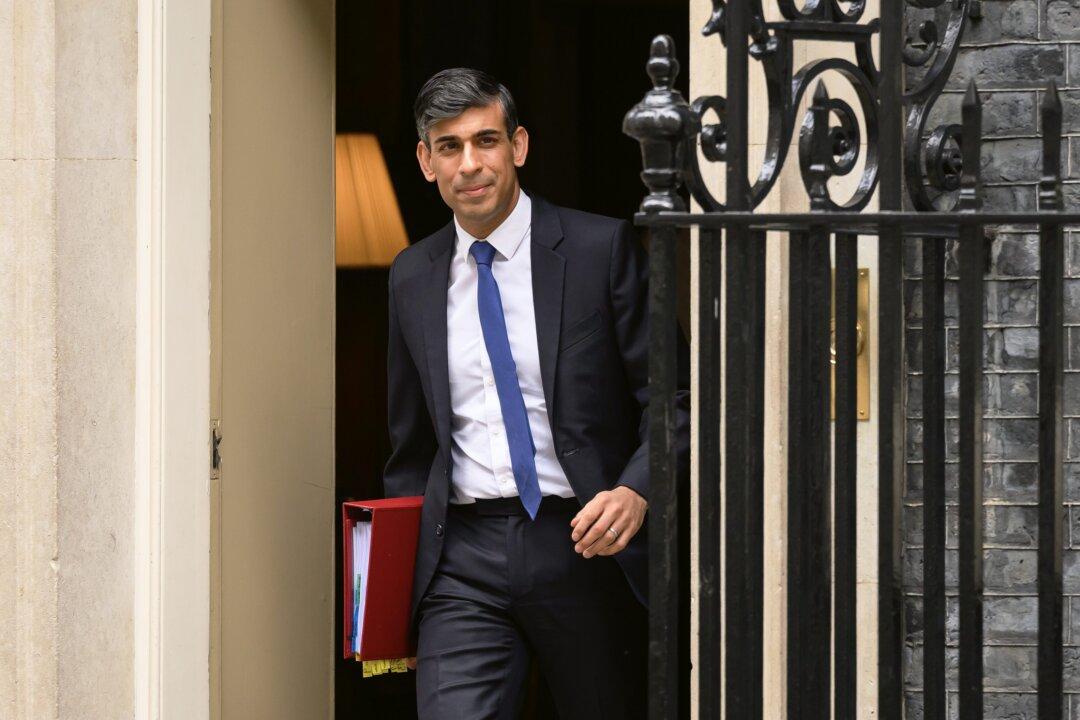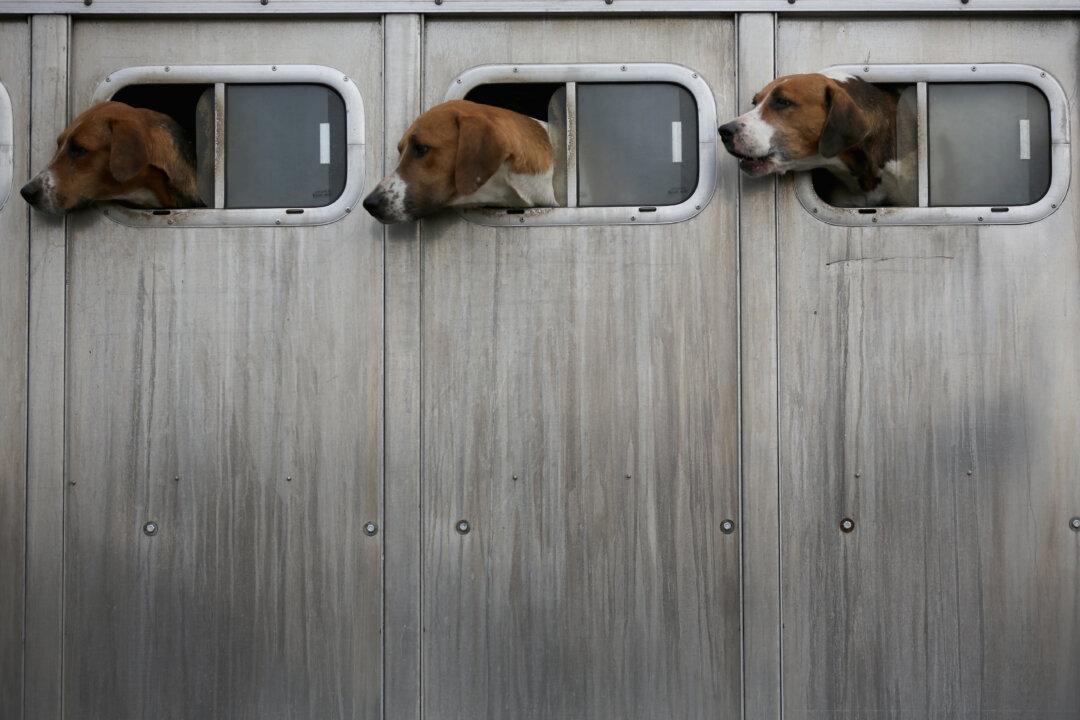In a setback labelled by a pollster as “central” to Prime Minister Rishi Sunak’s grip over the Conservative Party, the Rwanda bill—a centrepiece of Tory immigration policy—has been delayed following multiple defeats in the House of Lords on Wednesday.
The bill, officially known as the Safety of Rwanda (Asylum and Immigration) Bill, seeks to facilitate the deportation of asylum seekers to Rwanda and has been a subject of contentious debate.
Despite the government’s efforts to expedite the legislation, peers in the Lords rejected it, necessitating its return to the House of Commons for further consideration.
The delay is likely to extend until May, complicating the government’s timeline for implementing the policy.
Director of PeoplePolling Matt Goodwin told The Epoch Times: “The Rwanda deal is central to Rishi Sunak’s dwindling chances at the next election. Unless he can demonstrate meaningful progress in dealing with illegal migration, there will be no incentive for his disillusioned voters to return to the Conservative fold.”
The Lords’s rejection came after seven amendments were voted in, suggesting substantial opposition to the bill within the upper chamber.
Sunak Facing Polling Woes
This legislative hurdle is among several challenges facing Mr. Sunak, whose recent premiership has been marred by rumours over a potential leadership contest and declining public support.Chancellor Jeremy Hunt’s Spring Budget, seen as a pivotal moment to sway public opinion, failed to significantly impact polling numbers, exacerbating party discontent.
Concerns over the government’s performance in opinion polls suggest a looming heavy defeat in the general election, with the party holding just a three point advantage over the third placed Reform UK, which stands at 15 percent, and falling a distant second to Labour.
Amid these challenges, Mr. Sunak has sought to unify the Conservative Party, particularly in the face of upcoming local elections on May 2. He addressed Tory MPs on Wednesday, emphasising the importance of unity and dismissing speculation around potential leadership challenges as mere “Westminster gossip.”
Mr. Sunak told the BBC on Wednesday: “There’ll always be people focused on what’s happening at Westminster. But … when I go around the country every week talking to people, that’s not what they talk to me about.
“What they are talking to me about is making sure that inflation continues to come down, that energy bills and mortgage rates are falling, that we are cutting taxes so that their family have more money in their bank accounts every month … That’s what we’re delivering on the economy.”

Challenge to Sunak’s Leadership ‘Very Real’
Mr. Goodwin told The Epoch Times: “The growing challenge to Rishi Sunak is very real and is rooted in widespread disillusionment with the party’s collapse of support in the polls, and an incoherent, inconsistent message to the wider country. I think it’s highly likely that the Conservatives will experience a heavy, if not historic defeat, and then Rishi Sunak will then quickly be replaced as leader of the party.”Dame Andrea Leadsom, parliamentary under-secretary of state for public health, played down the potential for an imminent leadership challenge, telling LBC on Wednesday: “As I walk around Parliament, as I attend 1922 committees, as I go into the members’ tea room, into the lobby, I do not see a party that’s massively divided. There are one or two people who are trying to cause that division but what the government is doing is trying to get on with the programme.”
Braverman to Provide Tory ‘X’ Factor
On Feb. 26 at a confidential meeting in Parliament, a select group of Tory MPs were introduced to “Candidate X,” who was billed as a potential saviour for the party in the upcoming election.A presentation, which was led by political campaign group Whitestone Insight, described anonymised profiles based on possible leadership contenders to succeed Mr. Sunak.
The presentation featured a Whitestone Insight poll of 13,500 voters, which forecast the Tories would secure just 65 seats under Mr. Sunak’s leadership.
The survey evaluated the electoral prospects of three leaders from various party factions, identified only as X, Y, and Z.
Candidate X—Ms. Braverman—supports Brexit, advocates for reduced immigration, and opposes the rapid pursuit of net zero by 2050.
Under Ms. Braverman’s potential leadership, the presentation maintained that the Tories would emerge from the general election as the largest party in a hung Parliament.
Last week, Dame Andrea Jenkyns, a prominent Tory backbencher known for her critical stance towards Mr. Sunak, told the BBC’s “Today” podcast, “I personally want a new leader before the election.”
Former immigration minister Robert Jenrick—previously an ally of Mr. Sunak—and leader of the House of Commons, Penny Mordaunt, have both been touted as potentially challenging Mr. Sunak’s leadership, meaning his position seems to be precarious even ahead of an election, the eventual timing of which remains a delicate political decision.







